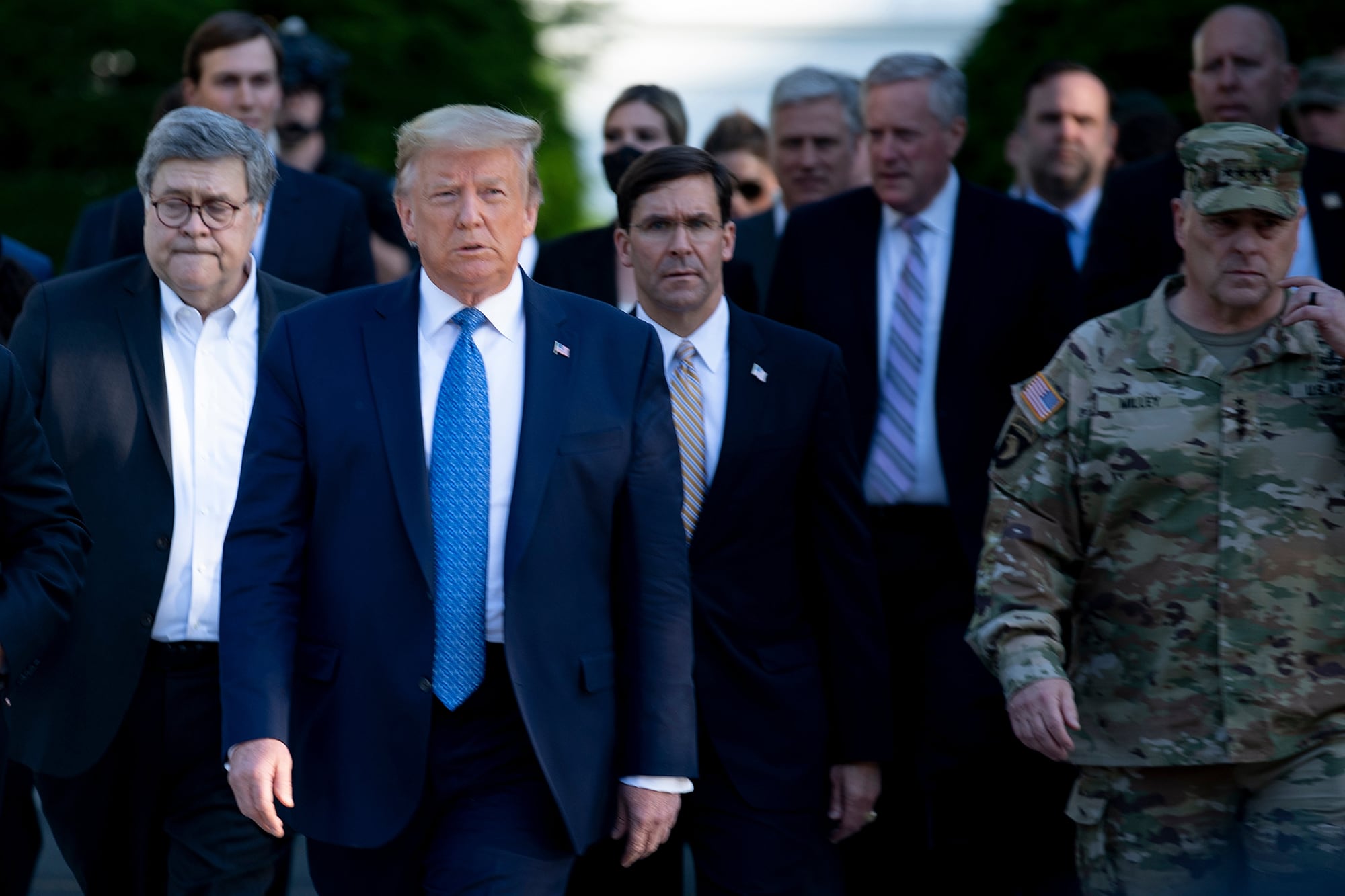In an excerpt released Aug. 8 by the New Yorker, authors Peter Baker and Susan Glasser — senior reporters for the New York Times and the New Yorker, respectively — reveal shocking details from inside former President Donald Trump’s relationship with top military brass.
In their book, “The Divider: Trump in the White House,” Baker and Glasser outline the departure of seemingly one top official after another, starting with the decision to replace former Commandant of the Marine Corps Gen. Joseph Dunford in late 2018.
“These were very untalented people and once I realized it, I did not rely on them, I relied on the real generals and admirals within the system,” Trump told the New Yorker about top military leadership, including generals Dunford, John Kelly and James Mattis.
Also revealed in the excerpt is a never-seen-before letter of resignation written by Chairman of the Joint Chiefs of Staff Gen. Mark Milley.
Written in the days and weeks following the killing of George Floyd and the resulting Black Lives Matter protests in 2020, Milley outlined how the Trump White House was causing fear and distrust of the military in the eyes of Americans across the country.
“You are using the military to create fear in the minds of the people—and we are trying to protect the American people,” Milley wrote. “I cannot stand idly by and participate in that attack, verbally or otherwise, on the American people. The American people trust their military and they trust us to protect them against all enemies, foreign and domestic, and our military will do just that. We will not turn our back on the American people.”

Milley also went on to detail how serving Trump meant going back on the oath all service members make to uphold the standards set forth in the U.S. Constitution.
“We’re all Americans,” He wrote. “That under these colors of red, white, and blue—the colors that my parents fought for in World War II—means something around the world. It’s obvious to me that you don’t think of those colors the same way I do. It’s obvious to me that you don’t hold those values dear and the cause that I serve.”
Milley rounded out the letter he never sent — following advise from other prominent military leaders including retired Army Gen. James Dubik and former secretary of defense and CIA chief Robert Gates — by claiming that the president was undoing lessons learned and conflicts fought since the First World War.
“It is my deeply held belief that you’re ruining the international order, and causing significant damage to our country overseas, that was fought for so hard by the Greatest Generation that they instituted in 1945,” Milley accused Trump. “Between 1914 and 1945, 150 million people were slaughtered in the conduct of war. They were slaughtered because of tyrannies and dictatorships. That generation, like every generation, has fought against that, has fought against fascism, has fought against Nazism, has fought against extremism.
“It’s now obvious to me that you don’t understand that world order,” he wrote. “You don’t understand what the war was all about. In fact, you subscribe to many of the principles that we fought against. And I cannot be a party to that. It is with deep regret that I hereby submit my letter of resignation.”
The full book will offer not just the chaotic relationships with military leaders but more in-depth looks at a number of controversial moments from the Trump years, including the months between the November 2020 presidential election and the Jan. 6, 2021, insurrection in Washington D.C.
Also included will be more insights behind the withdrawals and troop drawdowns in Syria, Iraq and Afghanistan, according to the excerpt.
Speaking to the president on the idea for a military parade, and highlighted in the excerpt as perhaps an overall theme held throughout the book, retired Air Force Gen. Paul Selva told Trump that after growing up in a dictatorship in Portugal, parades showing citizens who had the guns was a threat, and something that as Americans, “we don’t do.”
“So, you don’t like the idea?” Trump had reportedly asked him.
“No,” Selva said. “It’s what dictators do.”
“The Divider: Trump in the White House,” is expected to be published late next month.
Rachel is a Marine Corps veteran and a master's candidate at New York University's Business & Economic Reporting program.





